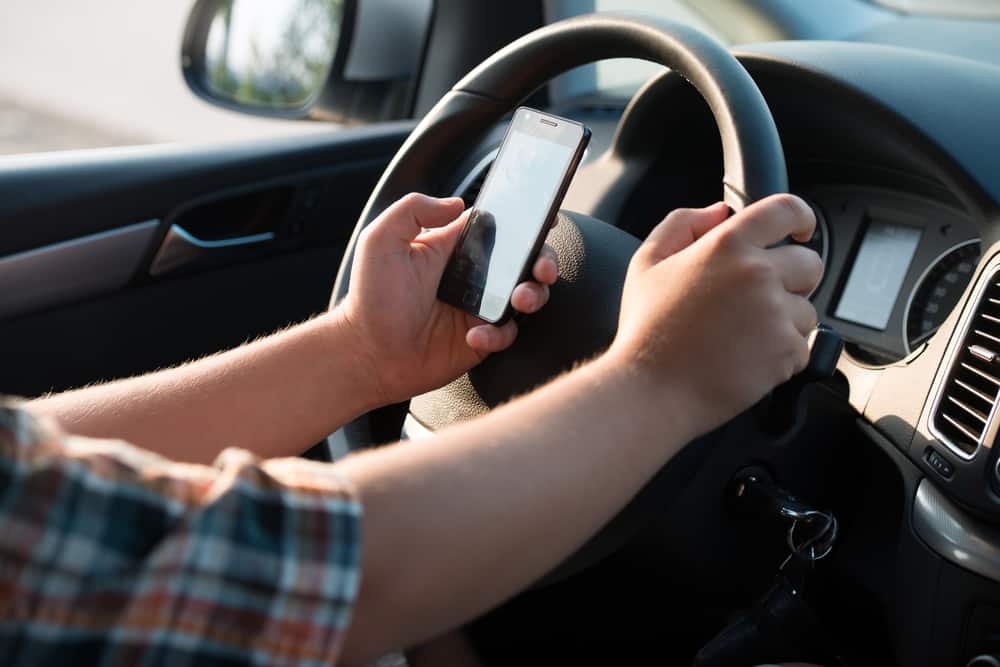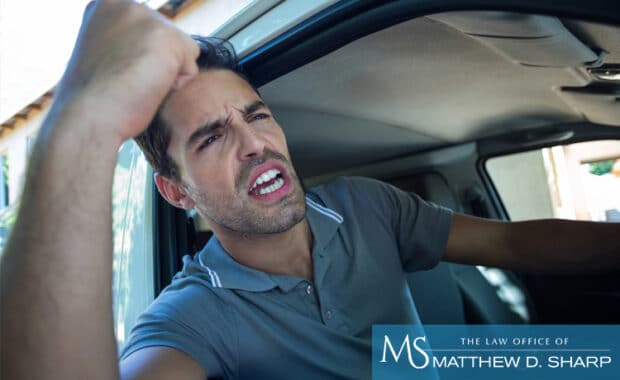The state of Texas will soon be the 47th state to ban texting and driving anywhere in the state. Governor Gregg Abbott signed House Bill 62 into law earlier this month. If ticketed for texting while driving in Texas after September 1, 2017, the driver will pay a $25 – $99 fine for a first offense, and $100 – $200 for a repeat offense. However, a repeat offender won’t face points on his or her license as a result of fines paid.
If the driver is involved in a collision with another motor vehicle, and the accident causes serious injuries or death, the driver may face a Class A misdemeanor. In Texas, a Class A misdemeanor is punishable with a maximum 12-month jail sentence and a fine of up to $4,000. This is a serious charge. If you or anyone you love is faced with a misdemeanor charge, you owe it to yourself to contact an experienced Houston criminal defense attorney as soon as possible.
H.B. 62 restricts drivers in Texas from texting while driving but doesn’t add more restrictive hands-free laws in place in other states. Some Texas cities, such as Denton, Austin, and San Antonio, have passed city ordinances that prevent drivers from operating a hand-held device when driving a vehicle. It will still be permissible for drivers to use a hand-held cell phone in an emergency under H.B. 62.
Texas City Ordinances that Prevent Texting and Driving
Approximately 90 local ordinances have been passed in Texas, including Alamo, Amarillo, Angleton, Aransas Pass, Arlington, Balcones Heights, Bee Cave, Big Lake, Brazoria, Buda, Carrizo Springs, College Station, Converse, Deer Park, Edinburg, Farmers Branch, Floresville, Galveston, Grand Prairie, Harlingen, Hereford, Hurst, Jacksonville, Kyle, Lake Dallas, Lakeway, Liberty Hill, Lockheart, Maypearl, Meadowlakes, Midlothian, Missouri City, Mount Vernon, Nacogdoches, Overton, Pampa, Penitas, Port Aransas, Rowlett, San Benito, San Marcos, Seagoville, Selma, Sinton, Socorro, Sunnyvale, Sweetwater, Universal City, Westlake Hills, White Settlement, Windcrest, and others.
Cities may elect to adopt new cell phone ordinances at any time. H.B. 62 doesn’t prevent them from adding restrictions to the law.
Existing cell phone ordinance fines range from $200 – $500. These ordinances either ban the driver’s use of any/all wireless communication devices behind the wheel, ban texting and driving, or ban texting plus other uses of a wireless communication device when the driver is operating a vehicle.
What Does H.B. 62 Mean for Drivers?
The previous law permits drivers to use a handheld device in lots of cases. Teenage users are an exception. A teenaged driver under 18 years old cannot use any handheld mobile device or any cell phone when he or she is operating a vehicle. If on a learner’s permit, the new driver is banned from use of any hand-held cell phone or mobile device for the first six months he or she has a Texas operator’s license.
Texas distracted driving laws also prevent the driver from hand-held device use if driving in a school zone. Students and school bus drivers can’t use any device on the bus or within the school zone.
Before H.B. 62 was passed into law, Texans didn’t have a statewide ban on texting and driving in place. Governor Abbott commented that he wants the new bill to unify laws that drivers face. He says that the H.B. 62 is intended to pre-empt local ordinances.
Other representatives, including Tom Craddick R-Midland, oppose the idea of pre-empting these earlier local ordinances. He argues that local governments in Texas have the right to put distracted driving laws in place.
Does H.B. 62 Help Drivers Understand the Dangers of Texting While Driving in Texas?
H.B. 62 doesn’t necessarily pose severe penalties to ticketed drivers. Texting and driving is a dangerous practice. Advocates of stricter laws point out that when a driver takes just five seconds away from the wheel to read, write, or send a text, the car can travel the length of a football field at 55 m.p.h.
Eyes off the road for even a few seconds can mean a terrible accident in which the driver goes off the road, veers into the opposite direction of traffic, or hits another car head-on.
- Pros: Advocates of H.B. 62 say it will help more drivers to understand the hazards of texting and driving and, in general, distracted driving. Drivers that break the law face fines. For many Texas drivers, $25 – $99 is a significant amount of money to lose.
- Cons: Those who oppose H.B. 62 say it really doesn’t go far enough. They argue that H.B. 62 won’t stop a lot of drivers from texting while driving. If the driver gets a ticket, some may say “No big deal.” It won’t impact the driver’s car insurance rates or result in a license suspension.
However, that’s not always the case. If a driver is texting and driving, and charged with careless or reckless driving as a result of an accident, the misdemeanor charge carries criminal punishments when serious injuries or death are involved. In that case, a driver will receive points on the driving record and higher car insurance rates are sure to follow. A license suspension is likely as well.
When Does H.B. 62 Go into Effect?
The new law goes into effect on September 1, 2017. At that time, it will be illegal to text and drive anywhere in Texas.
What are the Possible Penalties and Defenses Associated with H.B. 62?
Before H.B. 62 was passed into law, police officers have weighed in on the subject of how local ordinances are enforced.
Many officers say it’s difficult to enforce a local ordinance. Officers might not want to pull over a driver merely because it looks like he or she is using a hand-held device. Others say it’s no problem. Local ordinances have caused city and area revenues to increase throughout the state.
H.B. 62 Penalties and Defenses
On the face of things, H.B. 62 doesn’t seem to impose large penalties.
However, if a police offer writes a ticket for reckless driving in addition to the act of texting and driving in Texas, the driver then faces fines plus a maximum 30-day jail sentence. If the individual has faced similar charges in the past, a license suspension is likely.
- For working people, a suspended license and jail sentence is more than inconvenient.
- As above, if the driver texts and drives and has an accident with another motorist that results in serious injury or death, the driver is likely to face a Class A misdemeanor. If convicted, the defendant faces up to a year in jail plus a maximum $4,000 fine. These punishments could certainly change your life in a bad way–and leave you with a prior record.
The bottom line: Don’t text and drive. Doing so increases the possibility of being involved in an accident. According to NHTSA, almost 3,500 people were killed in distracted driving accidents in 2015.
Summing Up
H.B. 62 might not change a lot of Texas drivers’ minds about the dangers of texting and driving. We hope it changes yours. Distracted driving injures and kills thousands of people each year in the United States. If the potential punishments and fines don’t deter you, consider your loved ones. Drive safely each and every time you get behind the wheel. Use seat belts, and require your passengers to buckle up before you start the engine.
If you or someone you love needs the assistance of an experienced criminal attorney, contact The Law Office of Matthew D. Sharp in Houston.






